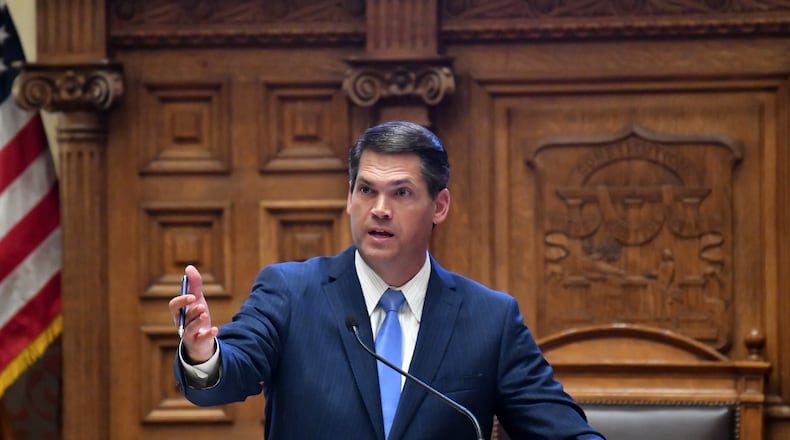The Georgia House backed a measure Wednesday to create a new state tax credit allowing Georgians and corporations to target taxes they would normally pay into the state treasury to support local law enforcement.
Senate Bill 361 was pushed by Lt. Gov. Geoff Duncan, who, while serving in the state House, authored a similar tax credit aimed at pumping money into struggling rural hospitals.
Duncan wanted the state to commit $100 million a year to the program benefiting law enforcement, but after the legislation passed the Senate, the House knocked it down to $75 million and passed it 153-5. The measure now heads back to the Senate for its consideration.
Duncan said the tax credit proposal is a response to rising crime and the need to better fund police departments and sheriffs’ offices
Under the bill, Georgians and corporations would get their state income tax bills reduced for writing a check directly to local police or sheriff’s foundations. The tax credits would be capped at $5,000 per individual ($10,000 per married couple) and 75% of a corporation’s tax liability.
“They would have the choice to use their tax dollars to support their law enforcement,” said Rep. Houston Gaines, R-Athens, who handled Duncan’s bill in the House. “Let’s help our law enforcement community.”
Police and sheriffs’ offices would be required to allocate the money to do things such as provide bonus pay and make other improvements to their departments. They could not use the money for hiring more police.
No police foundation would be allowed to receive more than $3 million a year, in hopes of spreading the tax credit cash to as many departments as possible.
Duncan on Wednesday called the bill “symbolic of what can happen when leaders seek solutions beyond the scope of government and promote good policy.”
“Our legislation serves as a model for government entities around the country to adopt within their own states and communities,” he said.
About the Author
Keep Reading
The Latest
Featured




